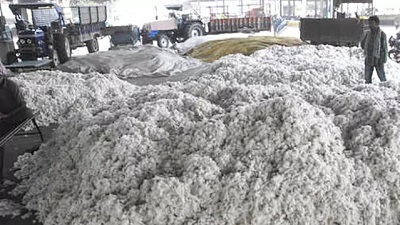Hyderabad, (Samajweekly) The National Seed Association of India (NSAI) has expressed deep concern over the recent decision by the government to only marginally increase the price of Bt cotton hybrid seeds for the upcoming kharif season (2024-25).
NSAI president Mandava Prabhakar Rao said on Monday that the decision to increase the price by only Rs 11 per packet falls substantially short of industry expectations, poses significant challenges to the seed companies and threatens the supply of quality seeds to farmers across the country in the future.
The NSAI has urged the government to engage in meaningful dialogue with industry stakeholders and take immediate corrective action to align seed prices with the increasing costs and demands of cotton farming.
The industry had advocated for a more substantial increase of at least Rs 147 per packet of 450 grams to save the cotton seed industry from the current crisis and to encourage the cotton seed industry to produce adequate seeds and invest in R&D for development of new cotton hybrid varieties for enhancing profitability of cotton seed growing farmer in the country to double their income.
He mentioned that even if the Rs 147 hike was considered, it makes the seed cost to approximately only 4 – 4.5 per cent of the gross farm income of cotton farmers, considering that the farmer would plant 1.5 to 2 packets per acre and earn approximately Rs 45,000 – Rs Rs 50,000 per acre at today’s price of cotton.
This is in line with the spending a farmer would do on other cash crops like hybrid maize, hybrid bajra, hybrid rice, mustard, wheat and others.
It has been stated that the proposed correction of Rs 147 will result in a 3.64 per cent of CAGR on cotton seed prices since 2016 the year the regulation started, which is still lower than the increase of seed prices of other crops like corn, rice, mustard etc.
Despite the pivotal role of Bt cotton in India’s cotton yield and production over the past two decades, recent years have witnessed a decline in yield due to technological fatigue and reduced investment in varietal development by seed companies, Prabhakar Rao said. The NSAI emphasised the urgent need for a comprehensive review of cotton seed pricing to ensure the financial viability of seed companies and sustain the supply of quality seeds to farmers.
It is expected that the availability of cotton seed in the planting year 2024 will be much short of the requirement of the farmers which can lead to usage of poor cotton seeds and dropping of yield, quality of fibre and profitability of the farmers.
The Textile Industry can suffer due to production of poor quality cotton.
Unless this price correction is done in 2024 and the price revision from 2025 onwards continues to be harmonised with the increase of MSP of cotton in the future years, the seed production may not be able to match the seed demand of cotton farmers due to loss to the seed companies and seed growers, the NSAI president said.








